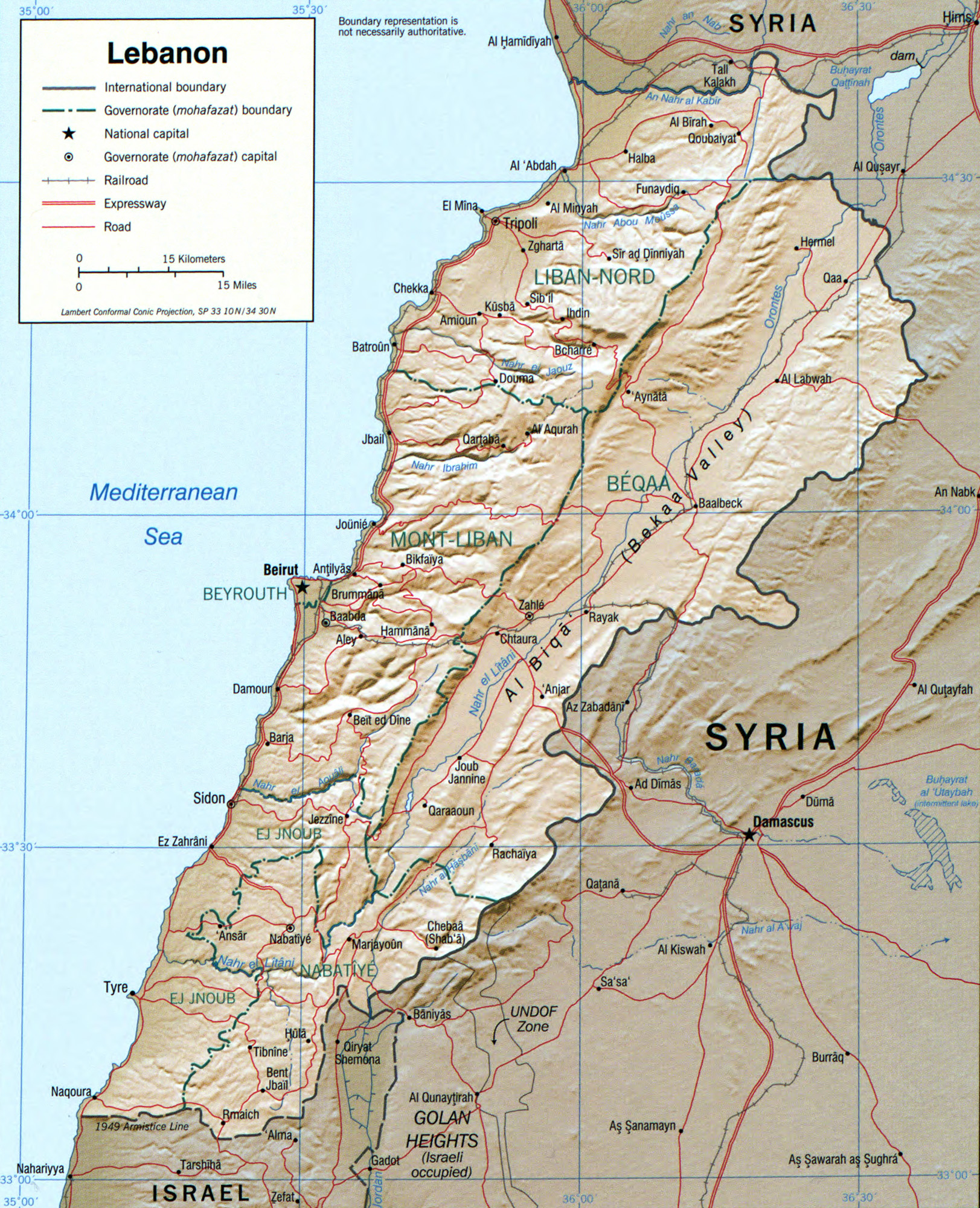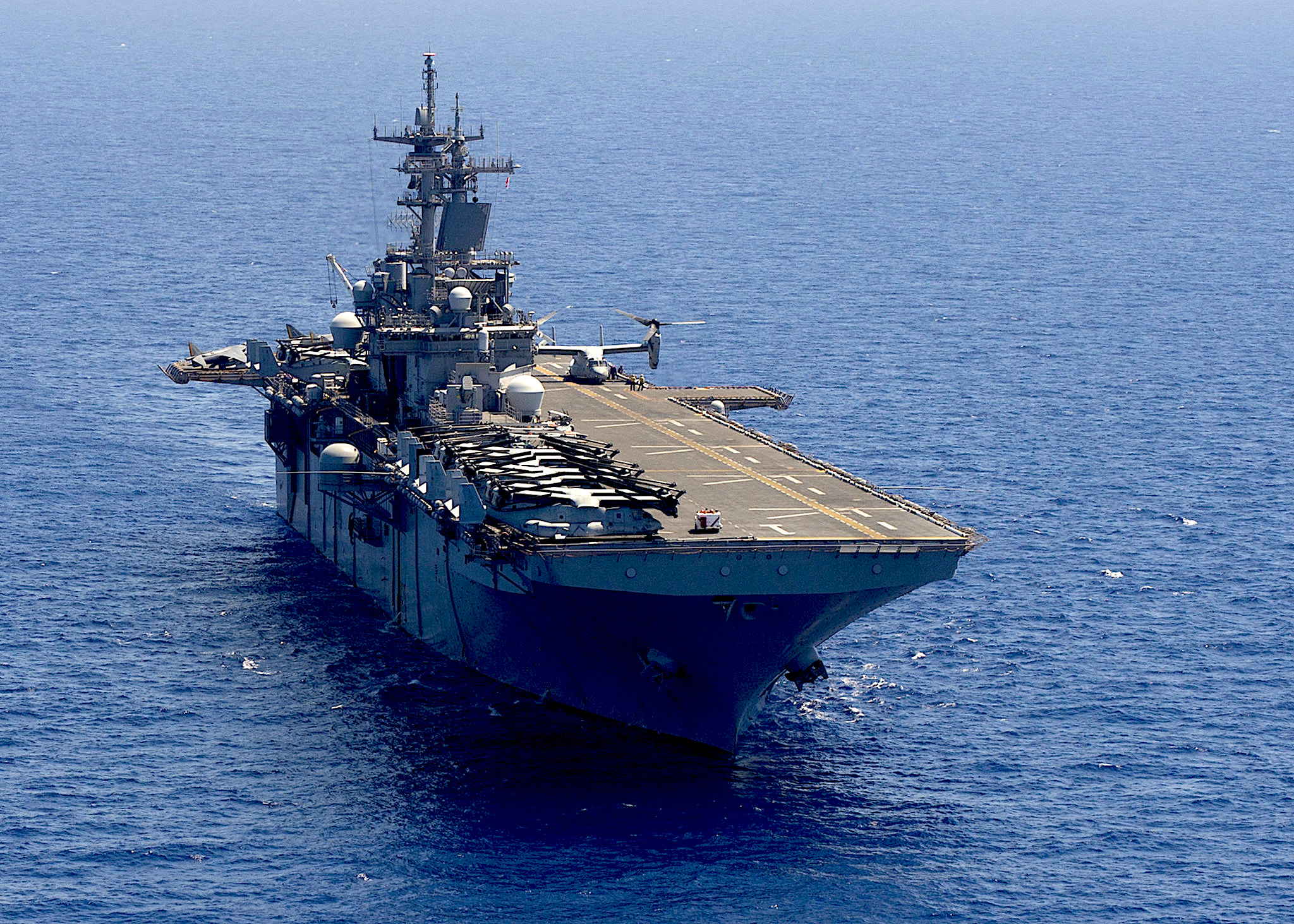Volume 29, Number 198 — Wednesday, July 10, 2024
PATRICK LAWRENCE: Netanyahu Goes for Broke
The Israeli prime minister has chosen this moment to mount a go-for-broke attempt to bring the U.S. into some kind of once-and-for-all conflict that would leave Israel supreme in the region.

Israeli Prime Minister Benjamin Netanyahu in January 2014. (World Economic Forum, Flickr, CC BY-NC-SA 2.0)
By Patrick Lawrence
Special to Consortium News

It is a matter of record that the Zionist project has had extensive territorial designs on the lands known as Palestine since at least the early 20th century.
As others have argued, the Israelis’ openly racist assault on the Palestinians of Gaza is to be understood not as a sudden eruption of violence, a departure, but as an especially savage continuation of Zionist conduct for more than a century.
When history is brought to bear in this fashion, it becomes increasingly apparent that the invasion of Gaza since the events of last Oct. 7 ought not be seen in isolation. The more pathologically disturbed members of Benjamin Netanyahu’s freak-show regime — notably, but not only, Bezalel Smotrich and Itamar Ben–Givr, the finance and national security ministers — have never been shy on this point.
They are entirely dedicated to the restoration of Eretz Yisrael, the mystical Land of Israel, which, variously interpreted through the ages, could extend at the extreme from the Red Sea all the way to the Euphrates Valley.
But the crazed ultras to whom Netanyahu owes his political survival have not yet got far enough to turn their visions into articulated policy. Is this changing?
This is our question, along with another: Is the Biden regime — or at this point its successor — prepared to “stand with Israel,” as American leaders like to put it, if extremist dreams of violent conquest turn into real, live political and military plans?I have been convinced for some time, as I gather that many Palestinians are, that when the Israel Occupation Forces are done in Gaza they will next turn to the West Bank. On this point I now correct myself: In my interpretation the IOF, in close collaboration with brutish Israeli settlers, has already begun its assault in the West Bank.
Attacking Hezbollah
Of late the Israelis have also been openly threatening to launch a full-scale attack on Hezbollah, the political and military movement that controls southern Lebanon. This, too, bears interpretation.
Douglas Macgregor, the retired colonel and now an energetic commentator on politico- military affairs, has no trouble putting together the 2–and–2 of this moment. Here he is last week on “Judging Freedom,” Andrew Napolitano’s webcast program:
“Whatever happened on the 7th of October, and I’m still not convinced that was not allowed to happen, … the decision then to attack had very little to do with what happened on the 7th of October and everything to do with a long-term strategic plan to begin the process of ethnically cleansing, expelling, or murdering, whatever you want to call it, the Arabs in Gaza and, ultimately, the Arabs on the West Bank.”
As others have argued, the Israelis’ openly racist assault on the Palestinians of Gaza is to be understood not as a sudden eruption of violence, a departure, but as an especially savage continuation of Zionist conduct for more than a century.
When history is brought to bear in this fashion, it becomes increasingly apparent that the invasion of Gaza since the events of last Oct. 7 ought not be seen in isolation. The more pathologically disturbed members of Benjamin Netanyahu’s freak-show regime — notably, but not only, Bezalel Smotrich and Itamar Ben–Givr, the finance and national security ministers — have never been shy on this point.
They are entirely dedicated to the restoration of Eretz Yisrael, the mystical Land of Israel, which, variously interpreted through the ages, could extend at the extreme from the Red Sea all the way to the Euphrates Valley.
But the crazed ultras to whom Netanyahu owes his political survival have not yet got far enough to turn their visions into articulated policy. Is this changing?
This is our question, along with another: Is the Biden regime — or at this point its successor — prepared to “stand with Israel,” as American leaders like to put it, if extremist dreams of violent conquest turn into real, live political and military plans?I have been convinced for some time, as I gather that many Palestinians are, that when the Israel Occupation Forces are done in Gaza they will next turn to the West Bank. On this point I now correct myself: In my interpretation the IOF, in close collaboration with brutish Israeli settlers, has already begun its assault in the West Bank.
Attacking Hezbollah
Of late the Israelis have also been openly threatening to launch a full-scale attack on Hezbollah, the political and military movement that controls southern Lebanon. This, too, bears interpretation.
Douglas Macgregor, the retired colonel and now an energetic commentator on politico- military affairs, has no trouble putting together the 2–and–2 of this moment. Here he is last week on “Judging Freedom,” Andrew Napolitano’s webcast program:
“Whatever happened on the 7th of October, and I’m still not convinced that was not allowed to happen, … the decision then to attack had very little to do with what happened on the 7th of October and everything to do with a long-term strategic plan to begin the process of ethnically cleansing, expelling, or murdering, whatever you want to call it, the Arabs in Gaza and, ultimately, the Arabs on the West Bank.”
This seems right but short of the emerging reality. A few minutes later in his exchange with Macgregor, Napolitano played a clip of Netanyahu addressing a table of officials, at least some of whom are American, last Friday:
“Iran is fighting us on a seven-front war. Obviously, Hamas and Hezbollah. The Houthis, militias in Iraq and Syria. Judea and Samaria on the West Bank. Iran itself.
They’d like to topple Jordan. Their goal is to have a combined ground offensive from their various fronts, coupled with combined missile bombardments. We’ve been given the opportunity to scuttle it. And we will.
The first requirement is to cut that hand [he gestures as if to cut through his right forearm], Hamas. People who do these things to us are not going to be there. We will have a long battle, I don’t think it’s that long, but we’ll get rid of them. We also have to deter the other elements of the Iran terror axis. We have to deal with the axis.
The axis doesn’t threaten only us. It threatens you. It’s on the march to conquer the Middle East — conquer the Middle East — conquer. That means conquer Saudi Arabia, conquer the Arabian Peninsula, it’s just a question of time. And what’s standing in their way is a small Satan, that’s us, on the road to the middle-sized Satan, that’s the Europeans — they’re always offended when I tell them that — ‘You’re the great Satan!’ And we have to stop that.”
So far as I know — and more in this line may be said regularly in Netanyahu’s closed-door cabinet meetings — this is the Israeli prime minister’s most explicit statement to date of how apartheid Israel understands the Middle East and its place in it. The danger of this vision will be immediately obvious.
In perfectly clear language, the Netanyahu government has effectively announced that its policy is to widen what is now the assault on Gaza, the IOF’s escalating aggressions in the West Bank and Israel’s provocations along Lebanon’s southern border. However much these statements reflect political pressure the extremists in his cabinet are exerting on Netanyahu, official policy is moving in their direction.
We already see this pattern, as noted, in the West Bank territories. As The New York Times reported last week, illegal settlers, under IOF protection, have stolen more land from Palestinians so far this year, typically at gunpoint, than at any time since the Oslo Accords were signed in 1993. West Bank sources report that up to 9,000 Palestinians have been arrested since the events of last October — mostly boys and young men, those typically inclined to organize an armed resistance movement.
In my read this is the West Bank’s version of the assault on Gaza. No F–16s, tanks, or heavy artillery this time: Deploying these would risk serious international opprobrium. No, the West Bank campaign will be waged more or less invisibly — a farm or an olive grove, a village or a murdered teenager or a kilometer of road at a time.
The US & Israeli Supremacy
The larger war, the war beyond the West Bank, is of course another matter. Israel knows full well it is incapable of waging anything like a “seven-front war” on its own: It is failing in the Gaza Strip as we speak.
Netanyahu has chosen this moment to mount a go-for-broke attempt to bring the U.S. into some kind of once-for-all conflict that would leave Israel supreme in the region — and so would instantly threaten to be the world’s most dangerous war — since who knows when.
We come to the second of the questions noted earlier. If Netanyahu proceeds to provoke his many-front war, will the Biden regime or the administration that follows it continue to offer the “unconditional support” the U.S. has extended to Tel Aviv for many decades?
I wish this were a more interesting question than it actually is. If Donald Trump retakes the White House, whatever modest restraints Washington may now feel — as the barbarities in Gaza continue — will disappear. But what about Biden, on the very off chance he runs in November, and the very, very off chance he wins? What about a Democratic successor who defeats Trump?
A couple of week ago, as things heated up along Lebanon’s southern border, Biden told Netanyahu — or says he told Netanyahu — that if Israel invades south Lebanon it will do so without American support. Another red line, it seems. Biden has drawn as many of these as there are stripes on Old Glory.
“Iran is fighting us on a seven-front war. Obviously, Hamas and Hezbollah. The Houthis, militias in Iraq and Syria. Judea and Samaria on the West Bank. Iran itself.
They’d like to topple Jordan. Their goal is to have a combined ground offensive from their various fronts, coupled with combined missile bombardments. We’ve been given the opportunity to scuttle it. And we will.
The first requirement is to cut that hand [he gestures as if to cut through his right forearm], Hamas. People who do these things to us are not going to be there. We will have a long battle, I don’t think it’s that long, but we’ll get rid of them. We also have to deter the other elements of the Iran terror axis. We have to deal with the axis.
The axis doesn’t threaten only us. It threatens you. It’s on the march to conquer the Middle East — conquer the Middle East — conquer. That means conquer Saudi Arabia, conquer the Arabian Peninsula, it’s just a question of time. And what’s standing in their way is a small Satan, that’s us, on the road to the middle-sized Satan, that’s the Europeans — they’re always offended when I tell them that — ‘You’re the great Satan!’ And we have to stop that.”
So far as I know — and more in this line may be said regularly in Netanyahu’s closed-door cabinet meetings — this is the Israeli prime minister’s most explicit statement to date of how apartheid Israel understands the Middle East and its place in it. The danger of this vision will be immediately obvious.
In perfectly clear language, the Netanyahu government has effectively announced that its policy is to widen what is now the assault on Gaza, the IOF’s escalating aggressions in the West Bank and Israel’s provocations along Lebanon’s southern border. However much these statements reflect political pressure the extremists in his cabinet are exerting on Netanyahu, official policy is moving in their direction.
We already see this pattern, as noted, in the West Bank territories. As The New York Times reported last week, illegal settlers, under IOF protection, have stolen more land from Palestinians so far this year, typically at gunpoint, than at any time since the Oslo Accords were signed in 1993. West Bank sources report that up to 9,000 Palestinians have been arrested since the events of last October — mostly boys and young men, those typically inclined to organize an armed resistance movement.
In my read this is the West Bank’s version of the assault on Gaza. No F–16s, tanks, or heavy artillery this time: Deploying these would risk serious international opprobrium. No, the West Bank campaign will be waged more or less invisibly — a farm or an olive grove, a village or a murdered teenager or a kilometer of road at a time.
The US & Israeli Supremacy
The larger war, the war beyond the West Bank, is of course another matter. Israel knows full well it is incapable of waging anything like a “seven-front war” on its own: It is failing in the Gaza Strip as we speak.
Netanyahu has chosen this moment to mount a go-for-broke attempt to bring the U.S. into some kind of once-for-all conflict that would leave Israel supreme in the region — and so would instantly threaten to be the world’s most dangerous war — since who knows when.
We come to the second of the questions noted earlier. If Netanyahu proceeds to provoke his many-front war, will the Biden regime or the administration that follows it continue to offer the “unconditional support” the U.S. has extended to Tel Aviv for many decades?
I wish this were a more interesting question than it actually is. If Donald Trump retakes the White House, whatever modest restraints Washington may now feel — as the barbarities in Gaza continue — will disappear. But what about Biden, on the very off chance he runs in November, and the very, very off chance he wins? What about a Democratic successor who defeats Trump?
A couple of week ago, as things heated up along Lebanon’s southern border, Biden told Netanyahu — or says he told Netanyahu — that if Israel invades south Lebanon it will do so without American support. Another red line, it seems. Biden has drawn as many of these as there are stripes on Old Glory.

CIA 2002 map of Lebanon, 2002. (Wikimedia Commons, Public domain)
There is the obnoxiously pronounced confidence Netanyahu displays when describing a wider war well beyond Israel’s capabilities. And there is the power the Israel lobby exerts in Washington, not least over Biden, who has received more funds from the American Israel Public Affairs Committee, AIPAC — more than $4 million during his Senate years alone — than anyone else holding elected office.
Late last month the U.S. Navy made one of those quiet logistical moves that sometimes seem to reveal more than intended. It sent an amphibious assault ship, the USS Wasp, into the waters of the eastern Mediterranean off the Lebanese coast. Among its other capabilities, the Wasp is designed to manage large-scale evacuations.

USS Wasp transits the Mediterranean Sea July 31, 2016. (Official U.S. Navy Page, Flickr, CC BY 2.0)
But an American official told The Associated Press, a little defensively I’d say, “It’s about deterrence,” implying the deployment is part of Washington’s diplomatic effort to prevent a dangerous war between Israel and Hezbollah.
Wait a minute. Just who is the Wasp intended to deter? Neither Hezbollah nor Iran wants a war with Israel any more than the U.S. wants to see one. No need of deterrence there.
And a ship off the Lebanese coast is not going to deter Israel: It stands unambiguously to encourage “the Jewish state” in its effort to bait the U.S. into the big war for which it spoils.
While one ship near Lebanese waters does not signal any grand new commitment to a grand new war — let us not over-interpret — the message seems clear: We don’t want a new war on our hands, Bibi, but if you provoke one, well, we’ll have to be there for you, “standing with Israel.”
I have written this previously but it bears repeating now: In Israel the U.S. has a Frankenstein’s monster on its hands, and there seems little prospect of anyone in
Washington having the intelligence and courage to disconnect the electrodes.
However dangerous the Netanyahu regime makes the Middle East, will be precisely the danger in which the U.S. will find itself.
Patrick Lawrence, a correspondent abroad for many years, chiefly for The International Herald Tribune, is a columnist, essayist, lecturer and author, most recently of Journalists and Their Shadows, available from Clarity Press or via Amazon. Other books include Time No Longer: Americans After the American Century. His Twitter account, @thefloutist, has been permanently censored.
No comments:
Post a Comment